This has been quite a year. Covid-19 caused the shut down of most of the country, including the IRS. Additionally, the IRS was still recovering from the government shutdown in 2019. Couple this with a severely understaffed agency to begin with, and you end up with millions of 2019 tax returns that are STILL waiting to be processed.
There are many reasons why these tax returns – and their accompanying refunds – have yet to be processed. Here are some of the most common reasons.
You claimed certain refundable credits.
If you claimed the earned income tax credit (EITC) or the additional child tax credit (ACTC) and have not received your refund or a notice in the mail from the IRS, you should probably give them a call. Your return may be being held up because the IRS has questions or needs additional information. The IRS would usually send a notice asking for this information, but with the Covid-19 shut down, many notices did not go out in a timely manner. The notice also could have been lost in the mail or you may have mistakenly thrown it away.
You filed your return late in the season (or after the filing deadline).
If you filed your return right at the filing deadline (or after the filing deadline had already passed), your return may be among the millions still waiting to be processed. Due to Covid-19, the IRS did extend the filing deadline to July 15, 2020. However, the later you filed your return, the longer it takes to process. If you filed on paper instead of electronically, it will take even longer. More on this in a bit…
The IRS suspects you are a victim of identity theft.
The IRS takes the possibility of identity theft very seriously. If they have reason to suspect that you are a victim of identity theft, they will put a hold on the processing of your return while they conduct an investigation, and you will have to wait until their investigation is complete. Add in the reduction in staff due to Covid-19, and this could take a while.
Your return is incomplete.
If you missed a form or made any mistakes, it will cause the IRS to put a hold on your return. The most common form that is forgotten is the reconciliation of tax credits for health insurance. If you receive your health insurance through the marketplace, you will receive a form 1095-A from your insurance provider. This form details your insurance premium and the amount of the premium tax credit you were given. You must reconcile these credits on your tax return. If you do not, the IRS will put a hold on your return and will not resume processing it until they receive the reconciliation (reported on form 8962). The IRS SHOULD have sent you a letter letting you know that they need this information. However, again, due to Covid-19, these letters have not gone out in a timely manner, if at all.
You filed a paper return.
If you chose to file your return on paper instead of filing it electronically, it adds several weeks of processing time – IN A NORMAL YEAR. This year, your return is likely one of the more than 7 million returns still waiting to be processed. On March 30, 2020, the IRS directed its employees to evacuate their worksites and closed more than 90% of their facilities, including call centers, processing centers and the mailroom. These facilities are still not fully functioning at pre-Covid levels as of today. The backlog in the mailroom is staggering.
So, these are the reasons why. What to do about it?
If you filed on paper, it is likely that you will just have to continue to wait. There is not really any easy answer there. These returns have to be manually opened, sorted and fed through the system, which will take time with reduced staffing levels.
If you filed electronically, and any of the above scenarios apply to you, you should contact the IRS to see what is happening. You can call the IRS at 800-829-1040. You should be prepared to wait on hold, as wait times have been exceeding 2 hours. You can contact the Taxpayer Advocate at their website https://www.taxpayeradvocate.irs.gov/ or by calling 877-777-4778.
How to prevent this from happening again
File your return electronically
This year, especially, the IRS is urging Americans to file their taxes electronically. The IRS expects 90% of taxpayers who file their returns electronically to receive their refunds within 21 days. Filing via paper return will add to the current backlog of approximately 7 million returns still waiting from the 2019 filing season.
Prevent costly errors
Be sure to review your return carefully for any errors or missing forms. If you received your health insurance through the marketplace, wait until you have received Form 1095-A and be sure to reconcile your premium tax credits on Form 8962. If you are claiming the earned income tax credit or the additional child tax credit, make sure to include all required documentation and answer all questions on Schedule EIC (EITC) and/or Schedule 8812 (ACTC) completely. If you receive correspondence from the IRS, BE SURE TO OPEN IT AND READ IT CAREFULLY. If they are asking for additional information, send it in to the IRS as quickly as possible.
Be honest
Don’t leave off that random 1099 you received or neglect to tell the IRS or your preparer about the retirement account you withdrew money from. They already know about it. While it is true that your return will be initially accepted – any you may even get that huge refund – they will figure it out eventually and come looking to take that refund back, along with some huge penalties. Save yourself a headache and just be honest from the beginning.
Make sure to include the stimulus payment(s) you have already received
The stimulus payments that were issued in 2020 were advance payments of credits that will be on the 2020 tax return. If you received these stimulus payments, you must account for it on your 2020 tax return. If you don’t, your return will be held up. If you can’t remember if you received a stimulus payment, or if you can’t remember how much you received, you can call the IRS and ask them. Your tax pro can also pull this information electronically, saving you the time and frustration of having to deal with the IRS yourself.
Hire a professional
Hiring a professional to prepare and electronically file your return is your best bet to avoid this mess. Tax professionals live and breathe tax and we are on top of the latest changes to tax law. This is especially important now, with changes being made to the law seemingly daily.
This is a confusing and stressful time. Don’t let taxes add to your stress. Give us a call – we can help!

